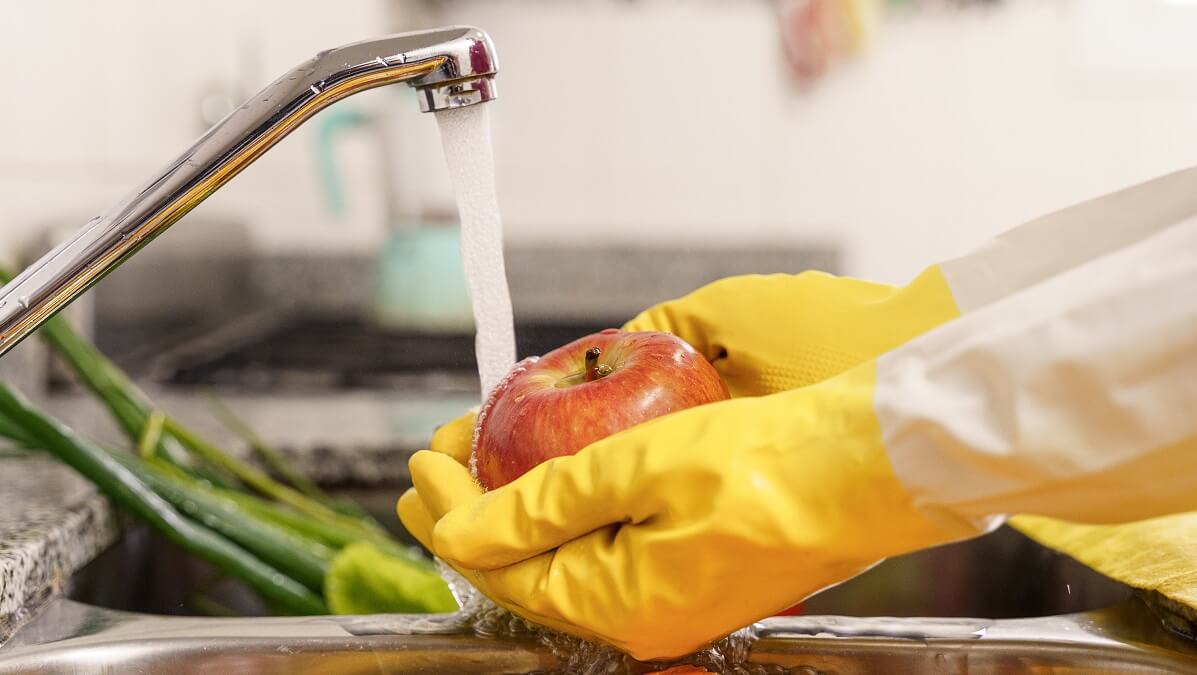We’ve come a long way in food safety in the past few decades.
Practices our grandparents didn’t think twice about have been thoroughly removed from our lifestyle.
But there are a few ‘myths’ that linger on, and we’re here to debunk them.
Bench press
This is probably a hangover from our parents who didn’t have microwaves, but don’t leave your food out on the kitchen bench to defrost. It can take hours to defrost the centre, and by that time the outside is well and truly at the temperature where bacteria likes to party.
Defrost food in the fridge or the microwave.
Cold comfort
The opposite of the above is the myth that you shouldn’t put hot food into the fridge.
I know for sure this is a generational thing, but it did have some basis fact. Older fridges just did not cope.
Modern fridges are good to go, so slide that leftover roast chicken in as fast as you can.
In fact, it’s better to refrigerate them as soon as possible to reduce the chances of bacteria growing in ideal temperatures.
A cut above
There is some debate about which is better, wood or plastic cutting boards. It’s the hill some people die on, but the truth is, as long as you clean them properly, both are fine.
However, it’s a good idea to replace them if they have deep cuts or scoring, as it will be difficult to remove any potential contaminants.
The only no-no is glass cutting boards, not because of hygiene, but because they will knock your knives around. Toss them out immediately.
Everyone does it
Food poisoning is often waved off as ‘not that bad’ but it shouldn’t be. One friend had to be airlifted back to Australia after getting a dose on her honeymoon (they are still married, if that counts).
For most people, yes, it’s yukky and unpleasant, but for some people, it can end in the hospital.
There are whole government departments and hospital protocols devoted to it. If they take it seriously, so should we.
Blame game
Some people are burdened with the assumption that if they get a dose of food poisoning, it’s from the last thing they ate.
Food poisoning can take anywhere from one to three days to develop, so unless you can be really sure stop blaming your last meal.
You need to rinse chicken
This is a weird US habit that should not catch on here. You do not need to wash your chicken. Not sure how this became so popular, or even a thing. Putting your chicken under running water will not reduce the bacteria. In fact, you are in danger of spreading it around if it does have any bacteria.
If you are concerned about bacteria on your chicken the best thing you can do is cook it.
Ice, ice baby
There are a few myths about frozen foods, perhaps the most common one is freezing will kill all the bacteria. Not so. Bacteria are stubborn and will survive being frozen.
Label all foods with the date they were frozen and follow this guide to how long they will last.
You can also safely refreeze foods, but they must be kept in the fridge at all times.
There are exceptions:
If food is completely thawed, warmed to room temperature or left out of the refrigerator for more than two hours, throw it out. These principles apply to meat, poultry, shellfish, some vegetables and cooked foods.
Do not refreeze ice cream and similar frozen desserts.
Do you have some rules about food handling? Have they changed over the years? Why not share your opinion in the comments section below?
Also read: Save yourself from bad rice

